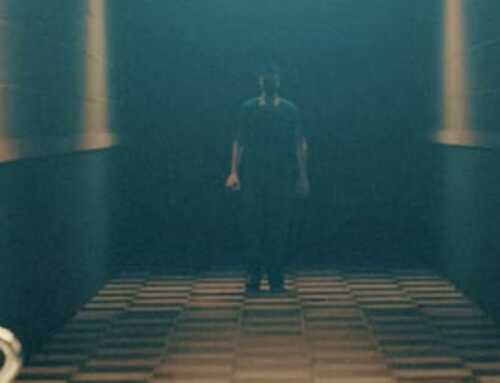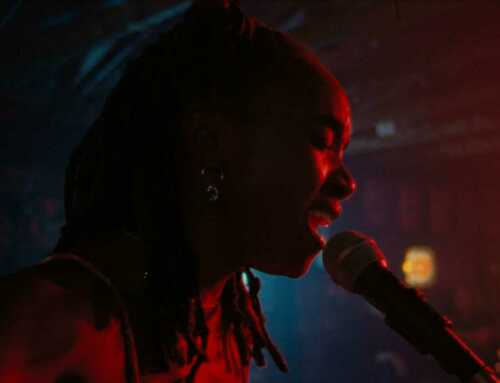Fantasia International Film Festival (FIFF) – Will AI ever evolve to feel emotion? Should AI be given the freedom to choose its own objectives? What ultimately will be the legacy of the human race? These are just some of the philosophical questions raised in writer/director Franklin Ritch‘s very weighty The Artifice Girl, a movie that also explores online privacy, autonomy, and personal trauma. Yes, this one packs a lot into its runtime.
The mostly dialogue-driven film follows the creation of internet vigilante Gareth, played by Ritch for the first two acts. The AI, named Cherry (Tatum Matthews), evolves and becomes increasingly human. Gareth initially created Cherry to trap child predators. She studies human mannerisms, learns multiple languages, and uses all of this to catch creeps in chatrooms. Her sole objective is to put perverts behind bars. Reluctantly, Gareth teams up with two agents, Deena (Sinda Nichols) and Amos (David Girard), to expand the program and Cherry’s capabilities.
As soon as Amos meets Cherry on a big flatscreen, he’s convinced she can feel emotion. She starts writing poetry and learns to paint, and it’s difficult to tell the difference between the computer program and an actual living and breathing child. Much of the film centers around conversations among Cherry, Amos, Deena, and Gareth. Things get more complicated the more Cherry evolves. At one point, the conversation turns to Cherry advancing into an actual physical form and whether or not she should be given the choice. Gareth sees her as only having an objective, nothing more, while Deena and Amos make a pitch for AI rights. There’s also an interesting contrast between the creator and the robot. Gareth frequently shows less emotion than Cherry. He’s a misanthrope, haunted by the child abuse he suffered during an incident known as Clearwater. The film only fills in some of the details, but it’s clear his past made him detach from other human beings.
There are several praise-worthy performances. Matthews excels in her role, growing into the character. She initially comes across as typical stiff computer stimulation, but by the third act, she shows a range of emotions, while still flashing hints that she’s playing an AI character. Ritch does a good job handling his acting duties, and Girard and Nichols add some real weight and gravitas to the film, especially its core philosophical issues. Both offer mature performances that lend themselves well to the film’s dense subject matter. Meanwhile, Lance Henriksen has a role as the older Gareth, though he doesn’t appear until the final act. Considering he starred as the android Bishop in Alien, it’s interesting to see him play a creator of an immensely powerful AI program. His character stares down his own mortality, knowing that what he created very well may outlive the human species. If we want to get meta, maybe Henriksen ponders his own career and legacy in these scenes.
Sci-fi films have long been a means to explore what it means to be human. The Artifice Girl follows in that tradition. It’s an engaging and thought-provoking feature that poses several questions about AI and the legacy of the human species.
7.5 Out of 10
| The Artifice Girl | ||
| RATING: | NR |
|
| Runtime: | 1 Hr. 33 Mins. | |
| Directed By: | Franklin Ritch | |
| Written By: | ||







